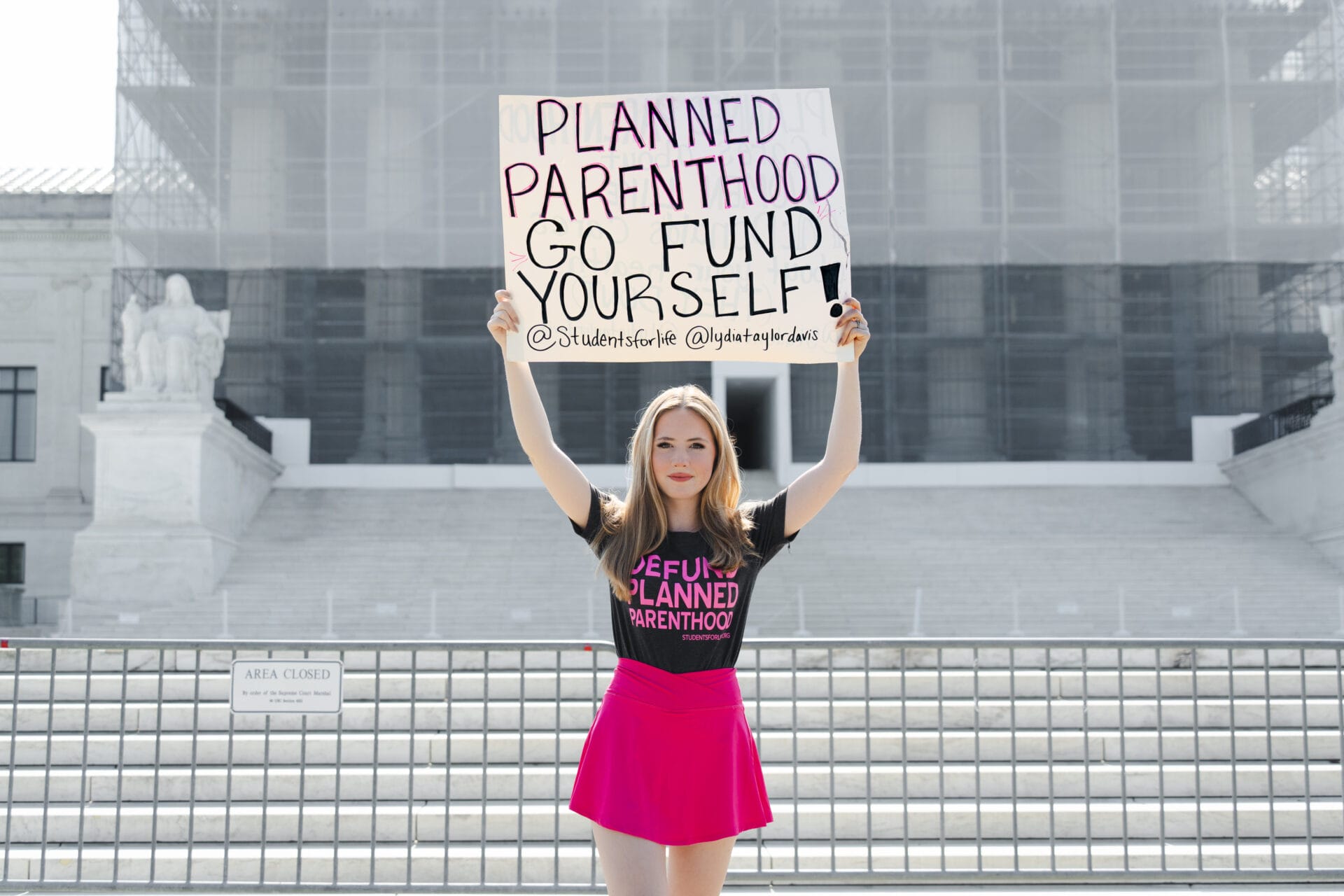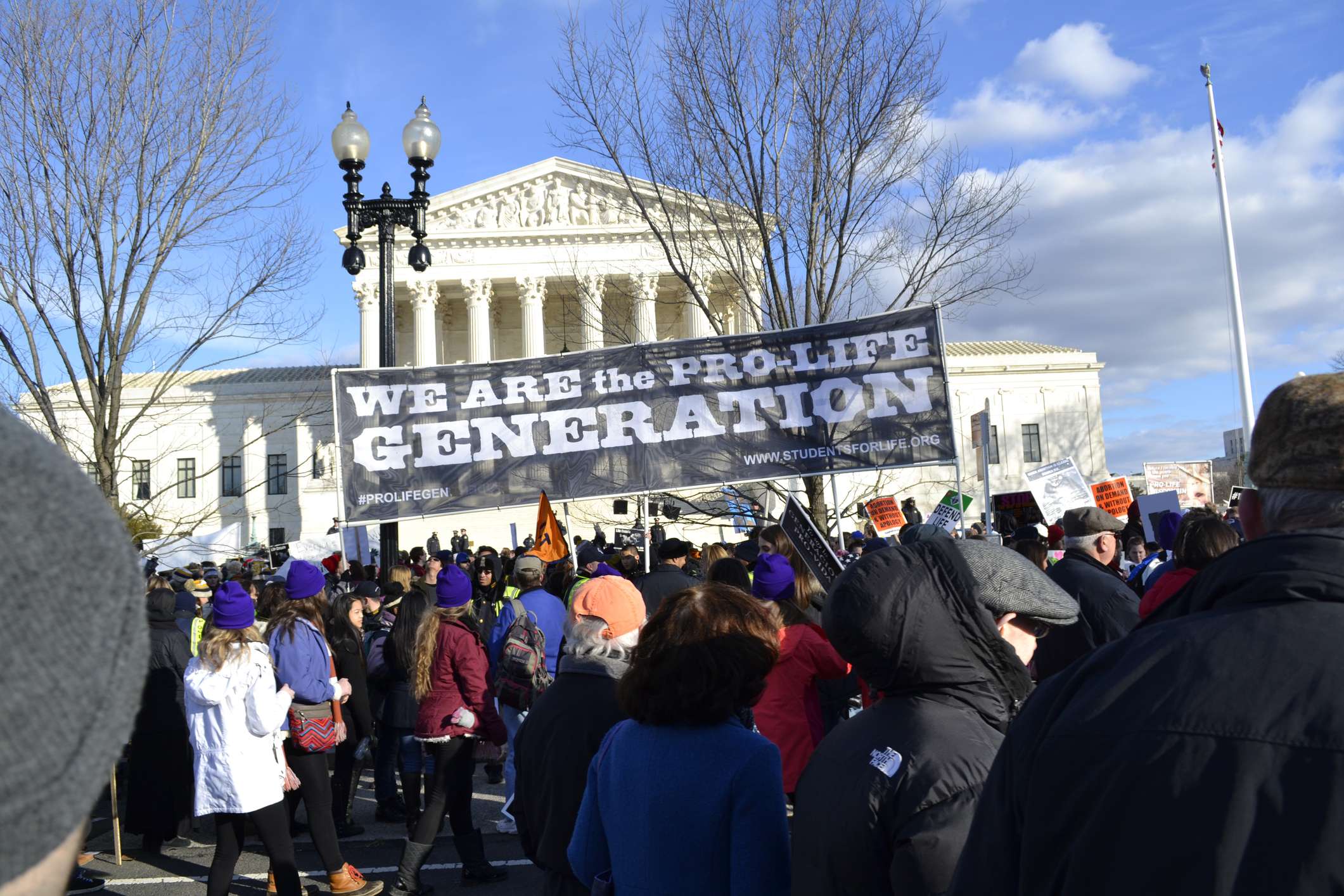
It turns out that abortion isn’t that funny, as comedian Grace Campbell found out by having an abortion of her own.

“If I can make the doctor laugh, then my abortion will be OK.”
These words are from Campbell’s recent profile in The Guardian where she reveals her abortion story. She learned abortion was no laughing matter and was far worse than how doctors and the culture described it. In this piece, she chronicles her heart-wrenching abortion, as well as the emotional and physical side effects medical professionals, friends, and the media didn’t communicate.
READ: 10 Reasons to Add Chemical Abortion Pills to Your HATE List
“Ever since I was a teenager, I’d been under the impression that an abortion was like a really bad period,” Campbell writes. “It hurt for a few days and then, after it was done, back to the pub for a night of gossip. But here I was, 29 years old, floored by a grief so intense it scared me. How could I be grieving something I didn’t know I wanted?”

She, of course, mid-story, reassures her audience that she’s still “pro-choice” and “pro-women,” referencing her crude and sex-positive comedic bits.
She proclaims: “I am obviously pro-choice. I say obviously, not because I assume you know who I am but rather, I assume you know what’s right. But if you do know who I am, you’ll know my comedy has always been described as “sex-positive” and pro ‘women being able to do what the fuck we want with our bodies.’”
However, her own story undercuts all the claims of “pro-choice” politicians, doctors, and supporters she stands behind. Her story sounds like something out of a horror film, as she details the depression, self-hatred, and deep sadness that no joke or Schitt’s Creek episode could cure.
What she thought would just be an awful period turned into seven weeks of bleeding and an emotional pit of despair to accompany it. She desperately went to Reddit to find reassurance and comfort in her decision. Despite being pro-choice, her abortion experience didn’t line up with the coldness of the money-hungry abortion industry, the dehumanizing nature of abortionist doctors, and the lie that she’d just “bounce back” after an abortion.

She described how she “felt furious that instead of warning me what might happen, the only medical professional I’d met in this process had showed me what I was losing and simply said, ‘There it is.’”
For now, abortion-supporting celebrities who have experienced an abortion are trying to balance the inconsistency of supporting abortion while acknowledging its horrors.
This profile is precisely what Campbell is trying to do – say how bad abortion is, but how good it is to have access to it. While it’s important for more mainstream celebrities to speak out about their horrible abortion experiences, it’s important for people in or out of the pro-life movement to not only acknowledge their pain but also ask why.
Why keep supporting a movement that claims to help women but isn’t truthful about how it hurts them?
Campbell represents many women taken in by the abortion industry and its jargon, even when their experience doesn’t match the experience the abortion industry is selling.
It’s not a “bad period” – it’s blood clots, medical waste, and a little baby flushed down the toilet.
The baby isn’t an object to discard – it’s an individual human being with moral weight.
There’s grief after an abortion – because, in that moment, the woman becomes a mother who lost her child.

Campbell does indirectly answer this question. In a nutshell, her inability to grow up and commit led her to make one of the worst choices of her life. As she makes it to her story, where she contemplates having an abortion, she lists all the things she can’t do, like stay up until 5 a.m., go to parties, and be irresponsible. She states bluntly:
“I’m Grace Campbell, I like staying out until 5am, not paying my parking tickets on time and sneaking vapes into cinemas. I’ve never thought about having a child. I’ve been too busy behaving like one. But now, at 29, in what felt like my last gasp of young adulthood, the words, ‘I’ll have an abortion,’ didn’t slip off my tongue.”

Campbell openly admits she wants to stay a child, and the mainstream media will most likely praise her. Still, another one of her short statements encapsulates a generation unwilling to commit:
“The prospect of making such a finite decision freaked me out.”
She’s describing the finite decision of ending her preborn child’s life. Arguably, this wasn’t just about making a finite decision. After all, she seems capable of making them. She chose to sleep with a random stranger, and she decided to take Chemical Abortion Pills. This is an issue of commitment.
It starts with a desire to disconnect sex from commitment. The same attitude that gives the “ok” to casual sex is the same attitude that gives abortion the “ok.” While it’s an entirely different conversation regarding the bonding chemicals released in sex and how damaging it is to have multiple sexual partners, it is far more complicated and complex to downplay the emotional damage of killing your preborn child.
And yet, that’s what Campbell attempts to do, all while wrestling with the real guilt and depression from a wrong decision.
Thankfully, there is healing for women who experience abortion, and there is hope for those considering it. No amount of late-night partying and vaping will heal it.

While readers may see through Campbell’s pro-choice wrapping paper and see the exposed pain abortion causes, Students for Life of America (SFLA) wants to reinforce that abortion is no laughing matter – Campbell’s tragic story is the story of so many women. While parenting or placing a child for adoption is hard, it is a decision that gives life, hope, and a future for a child.
Whether it’s Grace Campbell or an everyday woman, whether she’s pro-choice or pro-life, whether she’s well off or lower income, Chemical Abortion Pills hurt women. It’s never ok.
Share this post
Recent Posts

National Celebrate Life Weekend Dominates D.C.: Just Look at the Coverage
01 Jul 2025
The Pro-Life Generation REACTS: “Big, Beautiful” Budget Bill Vote One Step Closer to Defunding Planned Parenthood & ALL Abortion Vendors
01 Jul 2025
News: FIVE Lawmakers Recognized for Defending Life
30 Jun 2025

